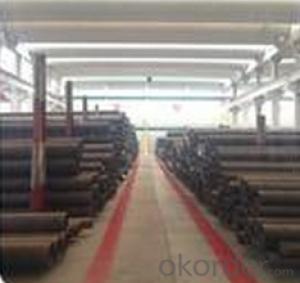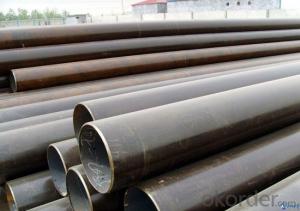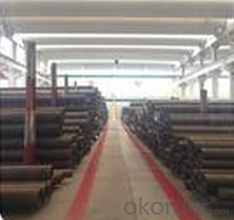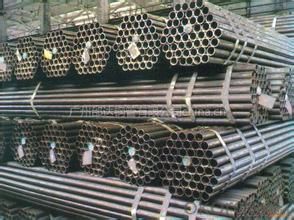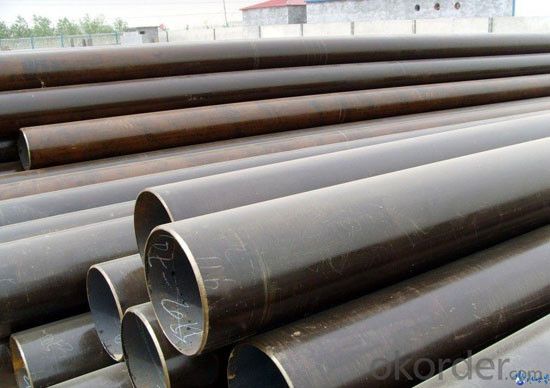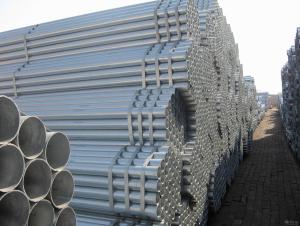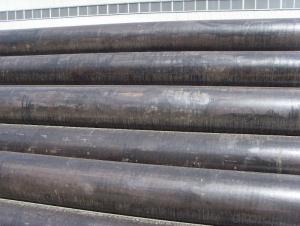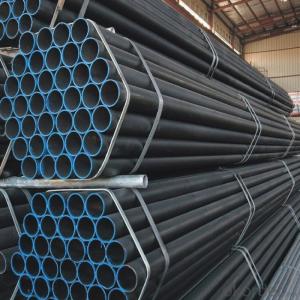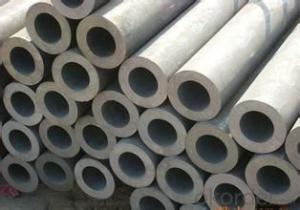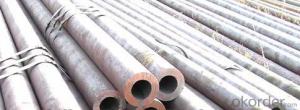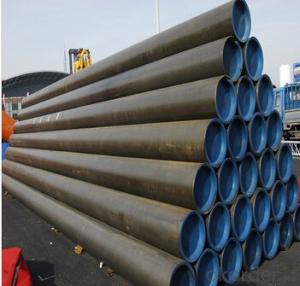Steel pipe for carbon seamless ,St45, cnbm
- Loading Port:
- Qingdao
- Payment Terms:
- TT OR LC
- Min Order Qty:
- 10 pc
- Supply Capability:
- 30 pc/month
OKorder Service Pledge
OKorder Financial Service
You Might Also Like
Quick Details
Thickness: 6 - 50 mm Section
Shape: Round,r
Outer Diameter: 33 - 600 mm
Secondary Or Not: Non-secondary
Application: Fluid Pipe
Technique: Hot Rolled,Hot Rolled,Cold Drawn,Hot Expanded Certification: API Surface Treatment: Beveled end or plain end or varnished as per buyer
Special Pipe: API Pipe Alloy Or Not: Non-alloy
Brand Name: XPY(Xinpengyuan)
Length: 6-12m or according to clients' requirements
Standard: BS 3059-2,JIS G3454-2007,GB 5310-1995,GB 3087-1999,GB/T 8163-1999,GB/T 8162-1999,GB 6479-2000,DIN 1629/3,DIN 2448,ASTM A106-2006,ASTM A53-2007,API 5CT,API 5L,BS,JIS,GB,DIN,ASTM,API
Certification & Standard | SGS & AISI |
Type | Cold Rolled |
Thickness | 0.14mm ~ 1.5mm |
Width | 10mm ~ 1240mm |
Length | As customers' requirements |
Surface finish | NO.2B/ NO.3/ NO.4/ HL/ 8K/ BA |
Chemical Composition (MT)% | (C) :≤0.12% (Si) :≤0.75% (Mn) :≤1.00% (P) :≤0.040% (S) :≤0.030% (Ni) :≤0.60%(Available to contain) (Cr) :16.00~18.00% |
Advantage | Good flexibility, Resistant to corrosion, Thermal Conductivity and lower thermal expansion. |
Application | l Be uesd in manufacturing kitchen ware field. l Auto exhaust parts, Heat exchanger, Washing machinery. l Interior/ Exterior decoration for building l Household Appliances or Appliance components. |
Market | Southeast Aisa, Mid East, Africa, Estern Aisa, Western Europe ,etc. |
Packing | Bundle package, Wooden case, Container or bulk, etc in export standard ;or as customers'requests |
- Q: How are steel pipes coated for protection against external elements?
- Steel pipes can be coated for protection against external elements through a process called corrosion protection coating. This typically involves applying a layer of protective coating, such as epoxy or polyethylene, onto the surface of the steel pipes. The coating acts as a barrier, preventing moisture, chemicals, and other external elements from coming into direct contact with the steel, thus reducing the risk of corrosion and extending the lifespan of the pipes.
- Q: How are steel pipes coated for insulation purposes?
- Steel pipes are commonly coated for insulation purposes using various methods and materials. One common method is the application of a thermal insulation coating. This coating is usually a high-performance polymer or epoxy-based material that is applied to the surface of the steel pipe. Before the coating is applied, the steel pipe is usually cleaned thoroughly to remove any dirt, grease, or rust that may be present on its surface. This is typically done through a process called abrasive blasting, where small particles are propelled at high speed to remove contaminants and create a clean, rough surface for the coating to adhere to. Once the surface is prepared, the thermal insulation coating is applied using different techniques such as spraying, brushing, or rolling. The coating is carefully applied in multiple layers to ensure proper coverage and thickness. This helps to create a barrier between the steel pipe and the external environment, preventing heat transfer and minimizing energy loss. In addition to thermal insulation coatings, steel pipes can also be coated with materials such as polyurethane foam or mineral wool. These materials provide excellent thermal insulation properties and are often used in applications where high-temperature resistance is required. Overall, steel pipes are coated for insulation purposes through a combination of surface preparation and the application of specialized coatings. These coatings help to reduce heat loss, increase energy efficiency, and protect the steel pipe from corrosion and other environmental factors.
- Q: What are the different strategies for pipe laying using steel pipes?
- Various strategies exist for laying steel pipes, each tailored to specific environments and needs. Here are a few commonly used approaches: 1. Open Trench: The traditional and widely employed method involves digging a trench along the desired pipeline route. Steel pipes are then placed in the trench, aligned, and welded together. This technique allows for easy access, maintenance, and repair of the pipeline. 2. Direct Pipe: This method is utilized when the pipeline needs to pass beneath obstacles like rivers or highways. It entails drilling a borehole from one side to the other while simultaneously laying the steel pipe. The pipe is subsequently pulled through the borehole, resulting in a continuous pipeline. 3. Horizontal Directional Drilling (HDD): HDD is employed when the pipeline must be installed beneath existing infrastructure or environmentally sensitive areas. A pilot hole is drilled horizontally, and the steel pipe is then pulled through using a reaming tool. This approach minimizes surface disruption and reduces environmental impact. 4. Sliplining: This technique involves inserting a smaller diameter steel pipe into an existing larger pipe. The smaller pipe is pushed or pulled into the larger one, providing a new corrosion-resistant lining. Sliplining is commonly used for rehabilitating deteriorated or damaged pipelines. 5. Microtunneling: Similar to HDD, microtunneling employs a microtunnel boring machine (MTBM) that simultaneously excavates the soil and installs the steel pipe. This method is frequently used for precise pipe laying, particularly in urban areas with limited space. 6. Jacking: Jacking, also referred to as pipe jacking or pipe ramming, is suitable for installing steel pipes in soil conditions that are unsuitable for open trenching. Hydraulic jacks or pneumatic rams are used to push the steel pipe into the ground. Jacking is commonly employed for crossing under railways, roads, or buildings. 7. Offshore Pipeline Laying: When it comes to subsea applications, various techniques can be employed, including S-lay, J-lay, or reel-lay. These methods involve deploying the pipeline from a vessel, either vertically or at an inclined angle, and welding the steel pipes together as they are lowered to the seabed. Each strategy possesses unique advantages and considerations, depending on factors such as terrain, environmental impact, existing infrastructure, and project requirements. It is crucial to thoroughly assess these factors and select the most appropriate pipe laying strategy to ensure the safe and efficient installation of steel pipes.
- Q: Can steel pipes be used for underground gas distribution?
- Indeed, underground gas distribution can make use of steel pipes. Within the gas industry, steel pipes are widely employed due to their exceptional strength, durability, and resistance to corrosion. These pipes possess the capacity to endure the pressure and stress inherent in gas distribution systems. Moreover, steel pipes have demonstrated their reliability and safety as a means of transporting natural gas below ground. Nevertheless, it is crucial to ensure that these steel pipes are adequately coated and shielded against corrosion in order to preserve their integrity and prolong their lifespan. Consistent inspections and maintenance procedures are also imperative to detect and rectify any potential problems that may arise.
- Q: Are steel pipes suitable for structural applications?
- Yes, steel pipes are suitable for structural applications due to their high strength, durability, and versatility. They are commonly used in various construction projects such as buildings, bridges, and infrastructure due to their ability to bear heavy loads, resist corrosion, and withstand extreme weather conditions.
- Q: What are the different threading options for steel pipes?
- The different threading options for steel pipes include tapered threads (NPT/NPTF), straight threads (UN/UNF), and buttress threads.
- Q: What are the different coatings applied to steel pipes?
- There are various coatings that can be applied to steel pipes to enhance their durability and protect them from corrosion. Some common coatings include fusion-bonded epoxy (FBE), which provides excellent corrosion resistance, and polyethylene (PE), which offers high impact strength. Other coatings include polyurethane (PU) and coal tar enamel, which provide additional protection against abrasion and chemical corrosion. Additionally, zinc coatings such as hot-dip galvanizing are used to prevent rust and extend the lifespan of steel pipes.
- Q: What are the dimensions of steel pipes?
- Steel pipes can have varying dimensions depending on specific requirements and industry standards. However, they generally adhere to standardized measurements for their outer diameter (OD), wall thickness, and length. The OD of steel pipes can range from small sizes, such as ¼ inch (6.35 mm) or ⅛ inch (3.175 mm), to larger sizes like 48 inches (1219.2 mm) or more for specialty applications. The wall thickness of steel pipes can also vary significantly, ranging from thin pipes with a few millimeters of thickness to thick pipes with several inches of thickness. Regarding length, standard steel pipes are typically produced in lengths of 20 feet (6.1 meters) or 40 feet (12.2 meters). However, custom lengths can also be manufactured to meet specific project requirements. It is important to note that these dimensions are only general examples and may not encompass all potential variations in steel pipe sizes. Therefore, consulting relevant industry standards and specifications is always recommended to determine the precise dimensions necessary for a specific application.
- Q: What is the abrasion resistance of steel pipes?
- The abrasion resistance of steel pipes is relatively high. Steel is known for its strength and durability, making it resistant to wear and tear caused by friction and impact. This characteristic makes steel pipes an excellent choice for industries and applications where abrasion is a common concern, such as mining, oil and gas, and transportation of abrasive materials. Additionally, steel pipes can be further enhanced with coatings or linings to provide even greater abrasion resistance, depending on the specific requirements of the application. Overall, steel pipes offer a reliable and long-lasting solution for handling abrasive substances and environments.
- Q: What quota is reserved for buried DN20 steel pipe?
- It is an embedded sleeve control sub item, if the reserved hole, then there is no need to cover, special subject structure adjustment factor of the cost of the water supply and drainage engineering, water supply and drainage engineering he is buried under the charge.
Send your message to us
Steel pipe for carbon seamless ,St45, cnbm
- Loading Port:
- Qingdao
- Payment Terms:
- TT OR LC
- Min Order Qty:
- 10 pc
- Supply Capability:
- 30 pc/month
OKorder Service Pledge
OKorder Financial Service
Similar products
Hot products
Hot Searches
Related keywords
